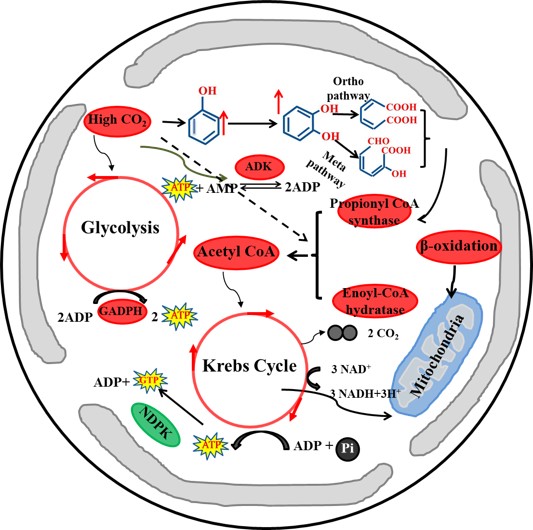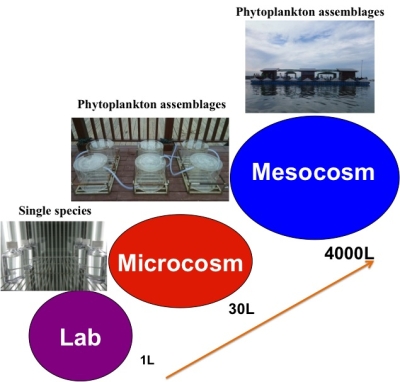Prof. Kunshan Gao (from State KEY Laboratory of Marine Environmental Science,Xiamen University)with other professors collaboratively published “Ocean acidification increases the accumulation of toxic phenolic compounds across trophic levels” in nature communication on 10,2015.
Increasing atmospheric COconcentrations are causing ocean acidification (OA), altering carbonate chemistry with consequences for marine organisms. Here the article shows that OA increases by 46-212% the production of phenolic compounds in phytoplankton grown under the elevated COconcentrations projected for the end of this century, compared with the ambient COlevel. At the same time, mitochondrial respiration rate is enhanced under elevated COconcentrations by 130-160% in a single species or mixed phytoplankton assemblage. When fed with phytoplankton cells grown under OA, zooplankton assemblages have significantly higher phenolic compound content, by about 28-48%. The functional consequences of the increased accumulation of toxic phenolic compounds in primary and secondary producers have the potential to have profound consequences for marine ecosystem and seafood quality, with the possibility that fishery industries could be influenced as a result of progressive ocean changes.

To address this issue, researchers here employ a proteomics approach to investigate the responses of a coccolithophorid, Emiliania huxleyi (CCMP 1516) to elevated CO2 at the molecular level. On the basis of the findings of the proteomics study, they hypothesize that OA could enhance some metabolic pathways, leading to enhanced production of phenolic compounds. To test this, they measured the levels of phenolic compounds and mitochondrial respiration rates in phytoplankton in monospecific laboratory cultures and in mixed phytoplankton assemblages, grown under different levels of CO2. Subsequently, zooplankton assemblages were fed with phytoplankton cells grown under the elevated CO2 concentration to examine possible food chain effects. Their results show that OA increases the levels of phenolic compounds in phytoplankton by enhancing β-oxidation, Krebs cycle and mitochondrial respiration, and the accumulated phenolic compounds are transferred to higher trophic levels (zooplankton).


